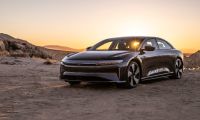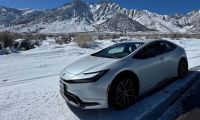Why would I say that? It is because executives have either come out and said as much, or it is implied by the responses and direct engagement between the US government and industry representatives that Hyundai motor group has had with the Biden administration since passage of the IRA. It is pretty obvious too when automakers file complaints with the WTO about the US’s protectionist measures that the automakers are going to do what they feel they have to do in order to thrive.
According to Green Car Reports, Nissan has recently announced an “accelerated shift” toward electrified and fully electric vehicles, which is great news, only they are only doing so in markets outside of the US. That doesn’t mean Nissan is going to ignore the US market and will certainly be selling electric and electrified vehicles here (their goal is 40% of their sales will be electric by 2030), but it does mean that Nissan isn’t planning to target the US market for any additional growth. It means Nissan isn’t going to try and lead in the US market, and will relegate it to also ran status. That may be a bit harsh, but Nissan led all the established brands into the EV market with its LEAF EV well over a decade ago, and apparently they aren’t interested in building on that legacy. I suggest this is because the US market conditions for EVs is pushing them in that direction. The restrictions of the IRA thus are likely at least in part responsible for the slowed approach to electrification that Nissan, and other manufacturers are taking. That is counterintuitive and will harm consumers who would otherwise have fewer choices for electric vehicles in the coming years. Of course America needs to be investing in critical supply chain components, domestic manufacturing capability and “green jobs” for its people, but the way the federal government has gone about it is actually going to hurt, in the short term at least.
Kia and Hyundai, at the point the IRA was passed, were poised to be the primary rivals to Tesla for leadership in the US EV market. In fact, they still took 2nd place behind Tesla in the US market (beating out Ford), but the IRA has negatively impacted their sales since its passage and would the law have allowed more time for manufacturers to move production and sourcing to the US or free trade partners, it is likely Hyundai Motor Groups market share would have been greater in 2022 than it was and will be going forward. This seems evident if you look at Kia’s EV sales figures for January and February of this year. Sadly, the impact of the IRA is, in the short term, a significant rise in the sale of non-electrified and “mild” hybrid vehicles (i.e. hybrids that don’t plug-in to charge their batteries), at the expense of EV and plug-in hybrid (PHEV) sales.
The LA Times, quoting Motor Trend said it best: “Tesla may have popularized electric cars, but Hyundai Motor Group is democratizing them, flooding the market with a wide variety of models, both styles and price points, and making them super cool or drop-dead gorgeous. Or both.” Thus the IRA has effectively curtailed EV sales growth in the US in the short term. And yes, allowing leased EVs from manufacturers that don’t meet the IRA’s strict rules and limited free trade agreements are being stood up to try and address these issues and will hopefully end up correcting what is otherwise a misaligned piece of legislation that hurts US consumers and slows our transition toward EVs. But what do you think readers? Will we see US automakers other than Tesla surge into the 2nd and 3rd spots in EV sales this year? Will their sales rise even more dramatically or might they struggle to absorb the deflected demand? Will US consumers be more or less likely to buy an EV if there continues to be significant competitive headwinds for non-US brands (with higher effective prices and lower availability)? Might a significant number of consumers just sit on the sidelines, avoiding EVs until the make and models they want are available at a reasonable price? Leave your feedback and questions below.
Images courtesy of Nissan and Kia.
Justin Hart has owned and driven electric vehicles for over 15 years, including a first generation Nissan LEAF, second generation Chevy Volt, Tesla Model 3, an electric bicycle and most recently a Kia Sorento PHEV. He is also an avid SUP rider, poet, photographer and wine lover. He enjoys taking long EV and PHEV road trips to beautiful and serene places with the people he loves. Follow Justin on Twitter for daily KIA EV news coverage.
Set Torque News as Preferred Source on Google











